George Lynch's top 5 tips for guitarists
KXM, Dokken and Lynch Mob man on gear, songwriting and recording
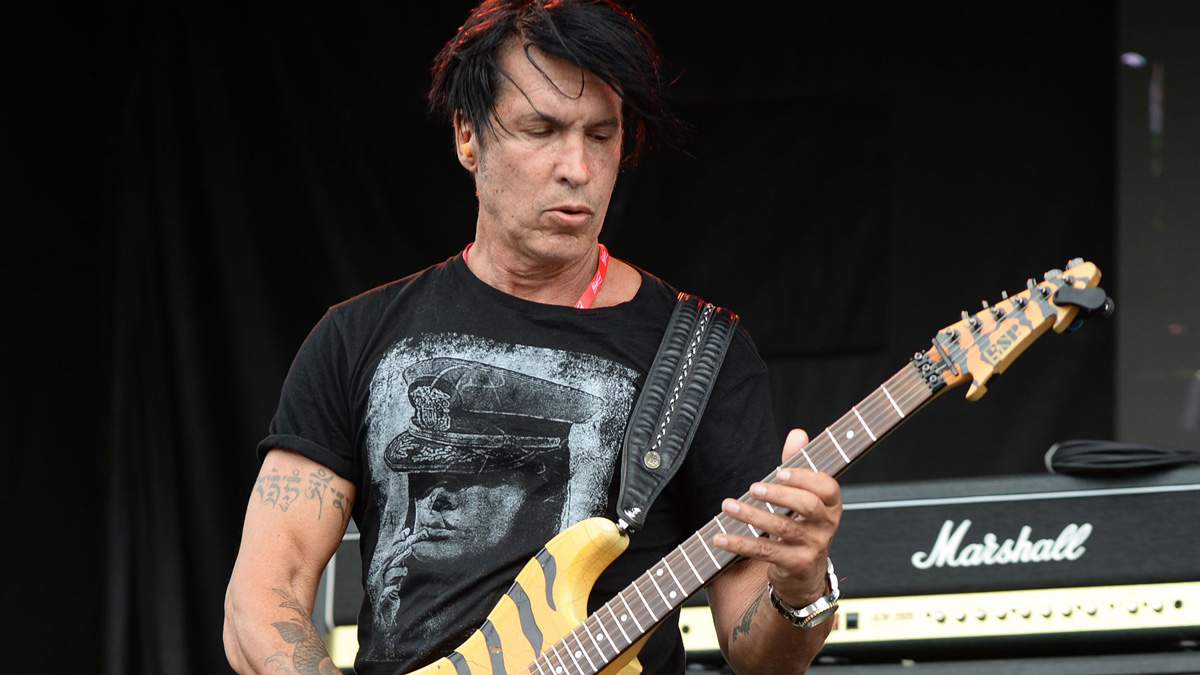
KXM
When making a new album, some bands slave over the writing process, ensuring every single part is nailed down before going into the studio.
Others prefer to work up a batch of ideas before tweaking and refining when the red light goes on.
And then there’s the KXM approach. The group - featuring George Lynch, King's X frontman Doug Pinnick and Ray Luzier - instead opt to walk into the studio without a single predetermined idea.
“We did not have any songs worked up when we went into the studio,” Lynch explains, discussing the band’s new album, Scatterbrain. “That was the number one rule with both of the KXM records.”
Lynch adds that drummer Ray Luzier - he of Korn fame - would be quickly on the case of anyone he judged to have broken the band’s golden rule.
Everything on this album was from scratch. We’re very proud of that. We captured a moment in time
“Ray, our drummer, is the song police. He has a great bullshit detector. If someone would throw an idea out there he could tell if they already had it in their back pocket, and he would throw it out.
“I would be driving into the studio and hear something in my head or on the radio and I thought it would give me something to start with, but Ray could tell whenever I had something premeditated.
“Everything on this album was from scratch. We’re very proud of that. We captured a moment in time. It was all improvised and then we worked it out.”
While the trio’s punishing individual schedules mean that touring Scatterbrain is more of an ambition than a nailed-on certainty, George remains realistic-but-upbeat on the prospects of hitting the road with Luzier and Pinnick.
“My main touring band is Lynch Mob and Ray’s main band is Korn. It’s pretty much impossible for us to call Korn and ask them to take a few months off so KXM can tour.
“We have promised ourselves that we will find a way to tour this album. We’re mapping out the year at the minute and there isn’t really any opportunity until later in the year. We think there’s maybe a 65-70 per cent chance.
“Ray is one of the sweetest human beings on the planet and he has brow-beaten us and said we needed to go out with another drummer. We refuse to do that; there is no KXM with another drummer - that would just be XM and that wouldn’t work. Ray is integral to the band, as we all are - you can’t replace anybody in this band. It wouldn’t work at all.”
With Scatterbrain set to drop on 17 March, we thought now was the perfect time to grill George and get the former Dokken man’s key tips for guitarists. Thankfully, he was more than willing to oblige.
Scatterbrain is available to pre-order at Amazon or iTunes, while special bundles and signed editions can be purchased from Rat Pak Records. All fans who pre-order the album through the Rat Pak site will be entered to win a one-of-a-kind custom guitar, as well as other prizes.
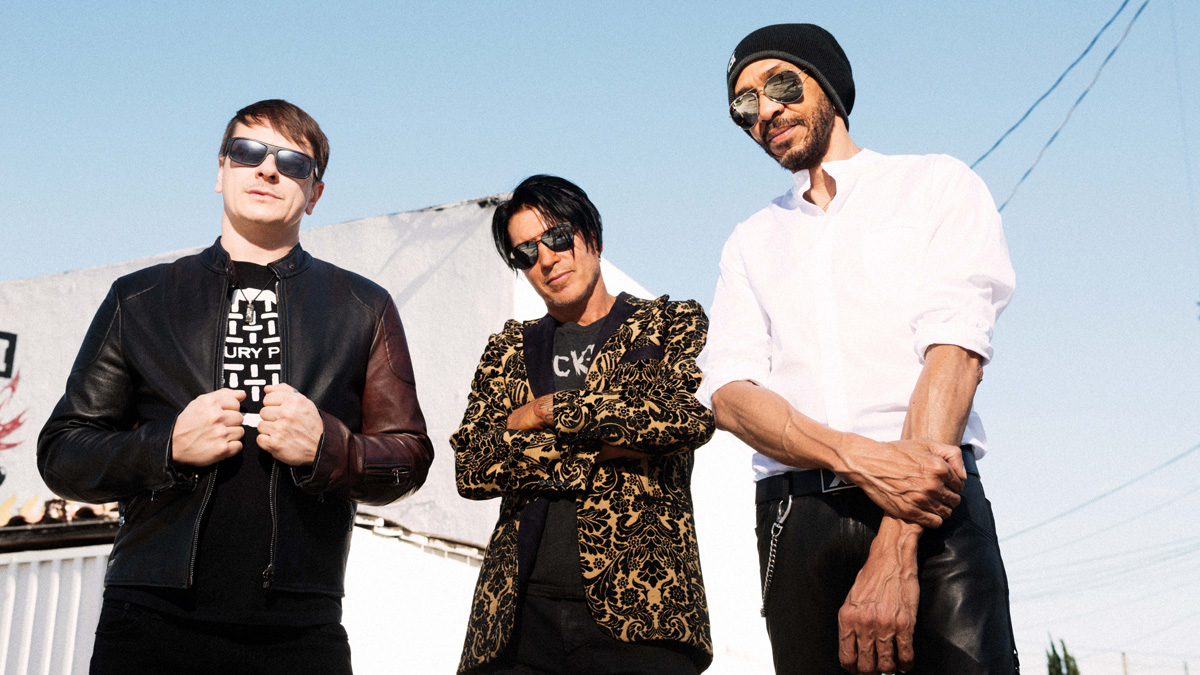
1. Don’t be scared to modify gear
“In the early days I would modify everything, as did the other guys in my first bands. We would disassemble all of our amps and build new cabinets.
“We wanted to be like Black Sabbath with a big backline, but we had very small amps. I had a 2X10 Fender cabinet. My bass player and I bought a bunch of Masonite and built walls of large cabinet but then just put one 10-inch speaker in each one and then covered them up.
It sounded horrible but we were really impressed with what we had done
“It sounded horrible but we were really impressed with what we had done, and we were very proud of ourselves.
“With guitars, I would modify them any way I could including refinishing, reshaping them, ripping things out. I was trying to find my own identity in something that was my own vision.”
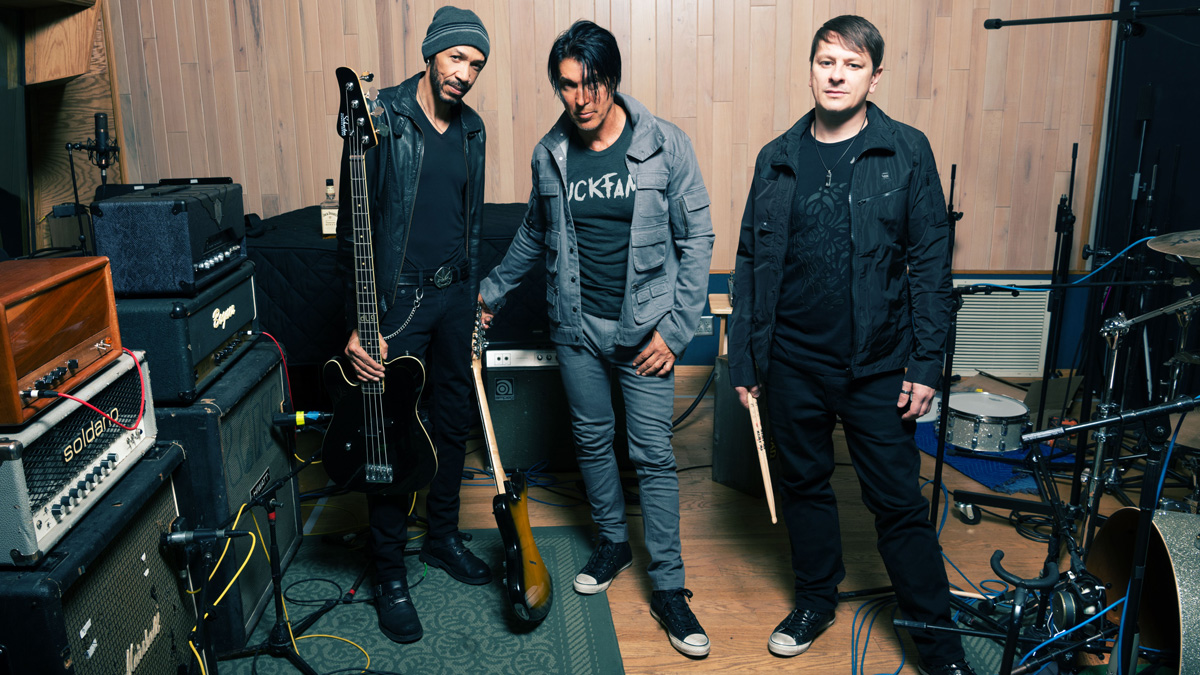
2. Think outside the box
“Gear is my biggest passion; there’s not a day that goes by where I’m not looking for stuff and researching stuff. If I were a multi-millionaire I would be spending it all on gear, for sure.
“I lean more towards amps than guitars; I find amps a little more interesting. You can buy amps that are cool and affordable and are sleepers. I like finding amps that not everyone knows about that do really cool things.
“Everyone knows a 1960 Marshall Plexi sounds good, and I do have one of those, but I like to find things like old amps that you’ve never heard of that have strange buttons and features.
If I were a multi-millionaire I would be spending it all on gear, for sure
“That’s great for your tonal palette and for overdubs. I’ll often reach for those, ‘Hey, let’s see what this Baldwin amp does, let’s see what this Mike Matthews amp does, what happens if you take the speaker out, put it in a shoebox and mic it up.’
“Right now, the way I feel is that there are so many good options in terms of gear. There’s so many great new amps but also lots of great old boutique amps. I have maybe 35 or 40 amps and I can use any of them in the studio and be very happy with my selection.
“They make the journey more interesting and they inspire me. I’ve been playing so long that I like to sometimes go off the beaten path, and the sonic quest does that for me.”
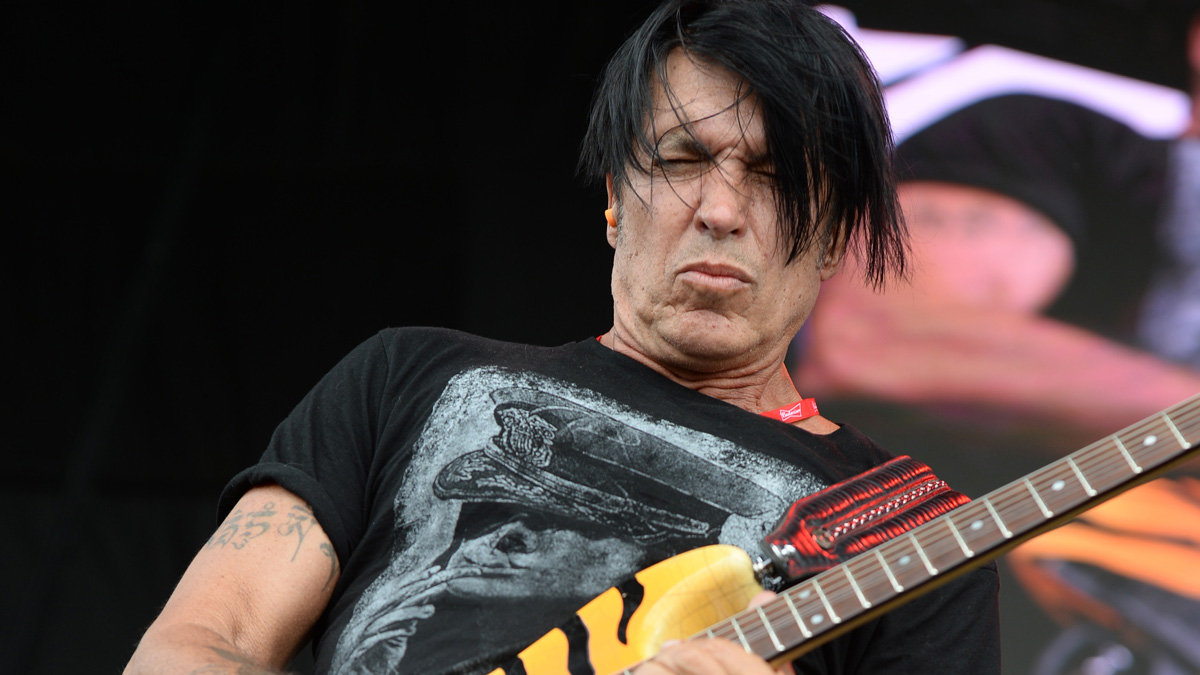
3. It’s not all about the money
“When you make a record like we do with KXM, having done a couple in this way, you have some second thoughts. You listen back and think, ‘Man, it’s a good record, it’s an 85 per cent record but it’s not a 100 per cent record.’
“[Lynch Mob record] Wicked Sensation to me was a 100 per cent record and that record was built in a laboratory over many months and with half-a-million dollars.
While Wicked Sensation cost $500,000, this KXM record cost $10,000. If you put the two records together you think, ‘$500,000, $10,000… holy shit!’
“Wicked Sensation had seven studios, two producers and we threw the kitchen sink at it and worked the songs to death. This new KXM album is the opposite to that. While Wicked Sensation cost $500,000, this KXM record cost $10,000.
“If you put the two records together you think, ‘$500,000, $10,000…holy shit!’ I know people don’t listen to records and think they like how much a band did or didn’t spend on it, but I do! I know the inside of this record and that is part of the picture for me. We were able to make this record without a lot of tricks - we weren’t using every resource available to mankind; we did it on our own.”
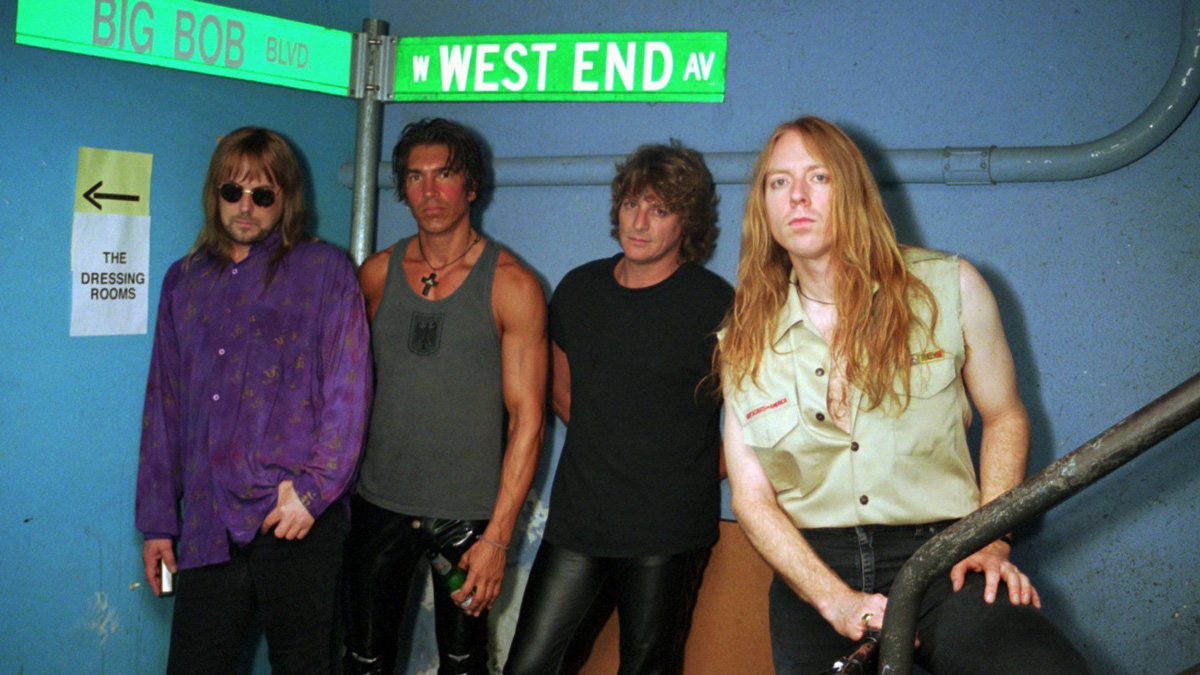
4. Find inspiration
“I had a guitar teacher for a little while when I was young, and his name was Jim Taylor. He inspired me as a human being; I loved to just listen to him talk.
“His playing was great as well, and his sound really affected me, probably more than anyone in my music life. To sit down with someone like that is huge and incredibly inspiring.
When I was younger I would listen to horn players and try to learn and adapt what they did. I wanted to create that breath and voice in my playing
“I’m a huge fan of Daniel Lanois. I would love to watch how he works in the studio as well and pick his brain as far as his pedal steel playing. I would love to take something like that and apply it to what I do.
“In the same way, when I was younger I would listen to horn players and try to learn and adapt what they did. I wanted to create that breath and voice in my playing. I’d rather do that than just sit down with a rock guitar player that plays better than me.”
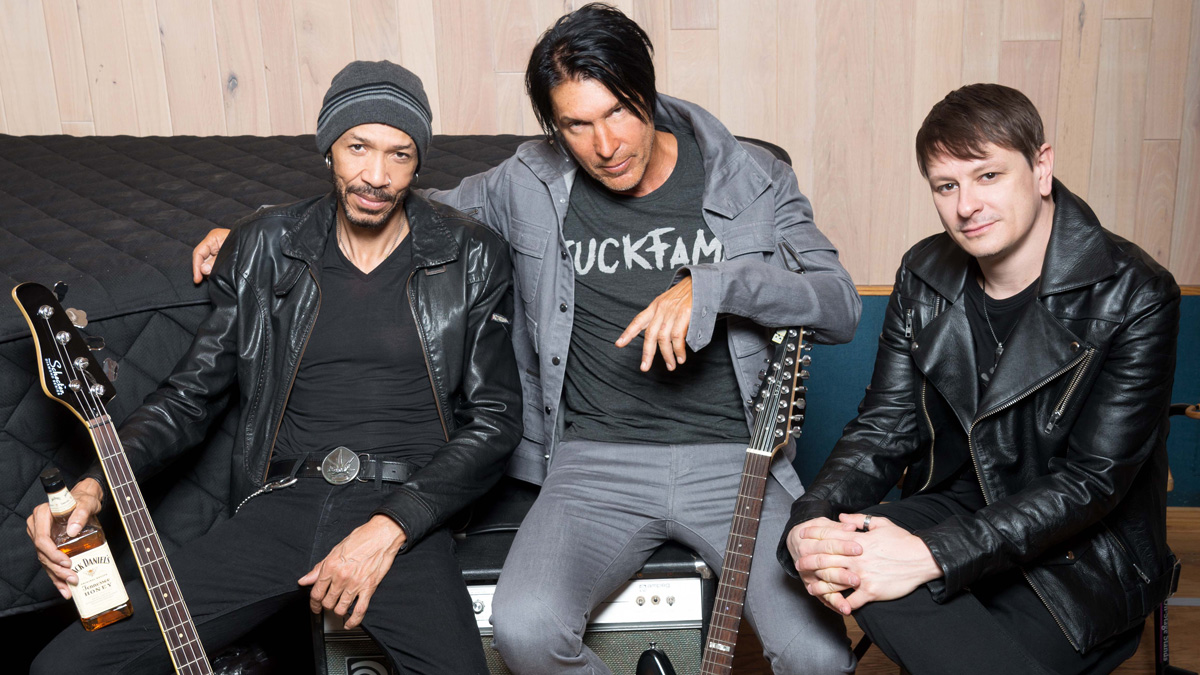
5. Don’t underestimate the hard work
“A general misconception that people have about musicians that are in the limelight is they think we live in ivory palaces on The Hills without a care in the world.
“I’m sure some in the higher echelons are like that, but for me I’m just proud to be a musician that can support a family. To raise and support a family for decades by writing songs and playing guitar is a rare thing, and that is exactly what my parents warned me about when I went down this path.
A lot of this isn’t fun. A day on the road is often 23 hours of pain for one hour of pleasure on stage
“My parents were very resistant to allowing me to do this, because there is little security in this work and that is very true. I have been very lucky. It surprises people sometimes that it is that way. This is a very interesting occupation - it is driven by passion and love. You don’t decide to do this; you are compelled to.
“I’ve had friends who wanted to see what I do come and spend time with me and they’ve travelled with me or came to the studio. They were blown away, and one particular friend came on the road with me and pretty much fell apart; they wanted to go home.
“A lot of this isn’t fun. A day on the road is often 23 hours of pain for one hour of pleasure on stage. That time on stage is our payday, it’s the easy part.
“But, this life isn’t always hard - I’ve just come off a rock cruise in the Caribbean. Sometimes you get those with a nice room and 24-hour buffet playing two shows in a week on a tropical island [laughs].”
Rich is a teacher, one time Rhythm staff writer and experienced freelance journalist who has interviewed countless revered musicians, engineers, producers and stars for the our world-leading music making portfolio, including such titles as Rhythm, Total Guitar, Guitarist, Guitar World, and MusicRadar. His victims include such luminaries as Ice T, Mark Guilani and Jamie Oliver (the drumming one).
